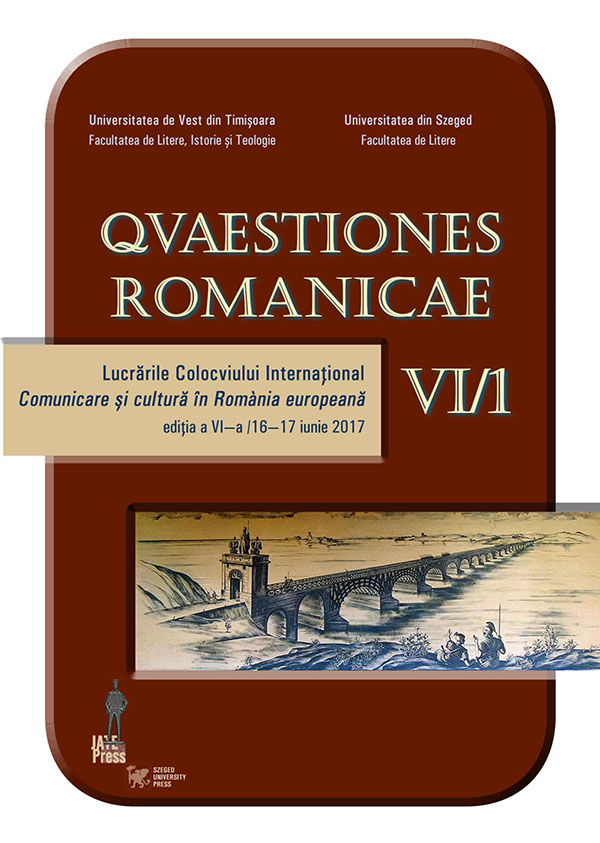La contribution des traductions à l’unification des normes de la langue roumaine littéraire moderne (le cas des Ballades de Victor Hugo traduites par Constantin Negruzzi)
Abstract: (The contribution of translations to unifying the standards of modern literary Romanian language - the case of Victor Hugo’s Ballads translated by Constantin Negruzzi) As a characteristic feature of the first half of the 19th century, the imperative of setting a unique written language - that would be a factor of spiritual cohesion and would play a decisive role in forging the national unity of the Romanians, while testifying of this unity - was asserted by all the leaders of Romanian cultural life. Besides correspondence, articles and books on the subject, from which we synthetize the theoretical contributions, the translations into Romanian, supported by a tripartite project of Ion Heliade Rădulescu, enable the researcher to identify the practical achievements of the selection of the unique norms of the modern Romanian language during the period concerned. As a result of the willingness to the vlach scholar, the translation of Victor Hugo’s Ballades due to Constantin Negruzzi was unanimously appreciated by the critics for its pioneering aspect. Against the previous exegesis, we constantly report the linguistic facts noted to the state of the literary Romanian when those versions were realized. The comparison of the published versions, between 1839 and 1841, in the main magazines of the three Romanian provinces, Albina românească, Curierul românesc and Foaie pentru minte, inimă şi literatură, authorize us to attribute to those texts a documentary value in the process of setting common rules of the Romanian literary standard language.
Keywords: translations, unification of the standards, Victor Hugo’s “Ballades”, Constantin Negruzzi.
Résumé : En tant qu’aspect caractéristique de la première moitié du XIXe siècle, l’impératif de la fixation d’une langue écrite unique – laquelle constituerait un facteur de cohésion spirituelle et aurait un rôle décisif dans la réalisation de l’unité nationale des Roumains, tout en témoignant de cette unité – a été affirmé par tous les animateurs de la vie culturelle roumaine. Outre la correspondance, les articles et les ouvrages de l’époque traitant du sujet en question, dont nous en synthétisons les apports théoriques, ce sont les traductions vers le roumain, soutenues par un projet triparti de Ion Heliade Rădulescu, qui permettent au chercheur d’identifier les manifestations pratiques de la sélection des normes uniques de la langue roumaine littéraire moderne. Résultat de l’adhésion à l’entreprise de l’érudit valaque, la traduction des Ballades de Victor Hugo due à Constantin Negruzzi a été unanimement appréciée par la critique pour son aspect de pionniérat. À l’encontre des exégèses antérieures, nous rapportons constamment les faits linguistiques relevés à l’état du roumain littéraire de l’époque où les versions respectives ont été réalisées. La comparaison des versions publiées, entre 1839 et 1841, dans les principales revues des trois provinces roumaines : Albina românească, Curierul românesc et Foaie pentru minte, inimă şi literatură, nous autorise à attribuer à ses textes une valeur documentaire dans le processus de fixation des règles communes de la norme littéraire.
Mots-clés: traductions, unification des normes, « Ballades » de Victor Hugo, Constantin Negruzzi.
